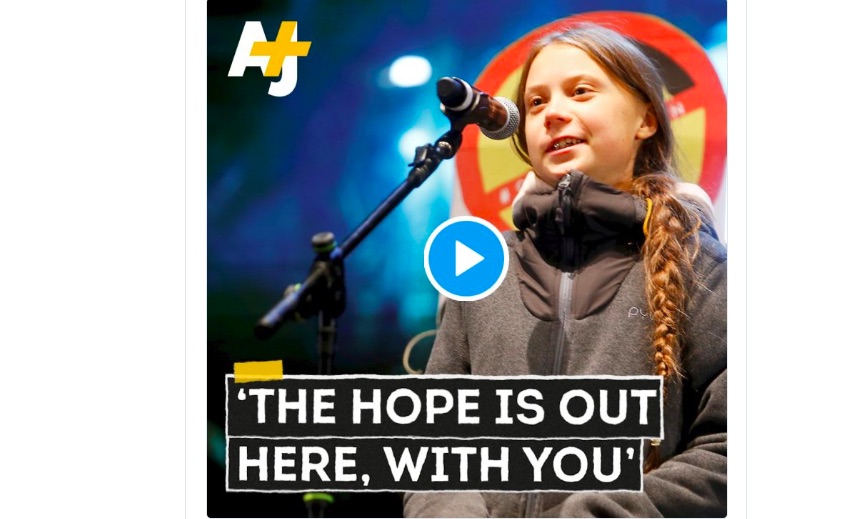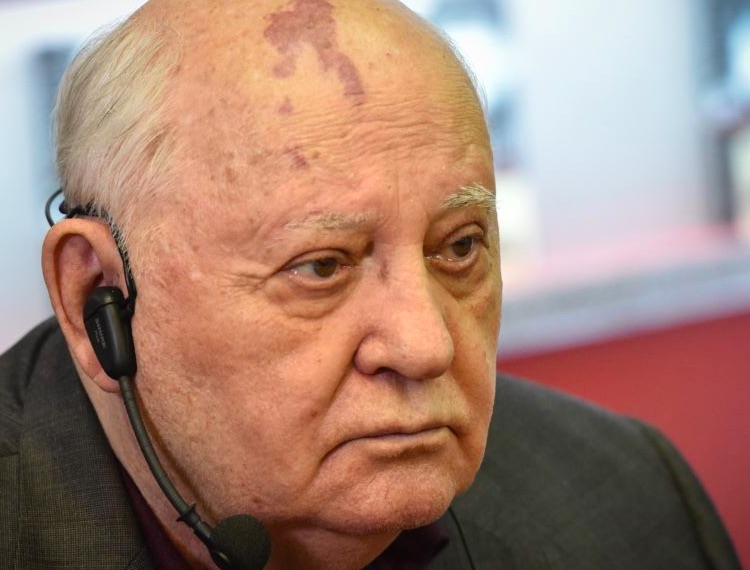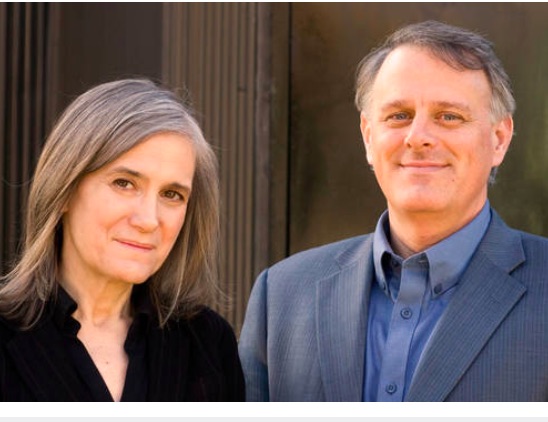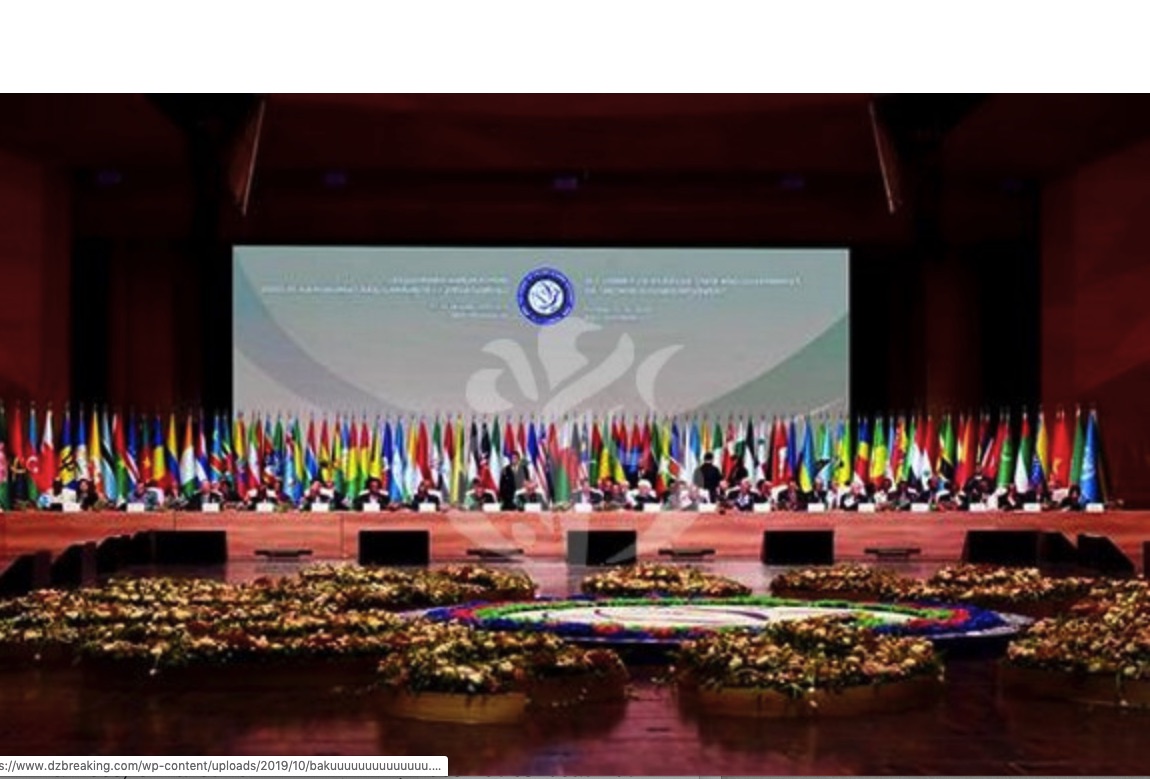. . SUSTAINABLE DEVELOPMENT . .
A blog by Emily Atkin at Heated World
Activists say the Paris agreement will be “on the verge of collapse” if rich countries don’t commit to paying poor countries for devastating climate-related losses.

This is what climate activist Greta Thunberg said . . .
After a three week catamaran journey across the Atlantic Ocean—and a train ride from Portugal—famed youth climate activist Greta Thunberg arrived in Madrid, Spain on Friday for the United Nations climate change conference known as COP25: the last time nations will come together before the Paris climate agreement is officially implemented in 2020.
Thunberg’s immediate message was one of frustration and urgency.
“We have been striking for over a year, and basically nothing has happened,” she told activists shortly after her arrival, and shortly before leading a march of 500,000 people through Madrid. “The climate crisis is still being ignored by those in power, and we cannot go on like this.”
There are people who will take Thunberg’s statement as a knock on her own activist movement. But those people willingly misinterpret her intention. Clearly, Thunberg is not saying that the climate strikes haven’t changed public opinion and understanding about climate change.
She’s saying that, despite a sea change in public opinion and understanding about the climate crisis, no one with any true power to change the global emissions trajectory has yet done anything about it. She’s saying that no one with any true power at the U.N. climate talks seems to understand the urgency of this crisis.
And she’s right. As an example, just look at what the United States is doing at COP25.
A proposal to avoid paying for climate impacts on the vulnerable
Last night, a source at the U.N. climate talks sent HEATED a photograph of a proposal being floated by the Trump administration’s diplomatic team. The proposal surrounds the problem of “loss and damage,” which refers to the “unavoidable and irreversible impacts of climate change, where mitigation has failed, and adaptation is not possible.”
I’m not sharing the photograph directly because it contains identifying information about the person who shared it, which would put that person’s job at risk. But here’s what the U.S. proposal on loss and damage says—and fair warning, to anyone who isn’t intricately involved with international climate politics, it reads like complete gibberish:
The decision package from the WIM to serve the COP in addition to the CMA could have the following components:
1. Serves both the CMA and COP as a single-consulted body with a single agenda, in accordance with past COP decisions/Paris Agreement
2. The agreement in paragraph 51 of 1/CP.21 on liability and compensation apples to work of the WIM serving the CMA and the COP
3. All Parties to the Convention (including those that are not Parties to Paris) and eligible to serve on the Excom
4. Annual report by the Excom to the COP and CMA considered jointly by the SBI and SBSTA in a single joint contact group
Fortunately, Harjeet Singh helped translate the document into real person words. Singh is the global lead on climate change for ActionAid, and has been following the U.N. negotiations about how to deal with climate loss and damage for a decade.
With this proposal, Singh said, “The U.S. is now attempting to add further protections for itself and fossil fuel companies against liability claims into the complex web of international climate legislation.”
And if this proposal is adopted at COP25 this week, Singh said, “the countries least responsible for the crisis, but are suffering the most, could stand even less chance of receiving financial support to recover from the devastating impacts of increasingly frequent and severe droughts, flooding and sea level rise.”
How in the world is that what the proposal says?
The U.S. proposal surrounds the WIM—that is, the Warsaw International Mechanism for Loss and Damage. This mechanism was established by the U.N. in 2013, so that rich countries that are most responsible for the climate crisis could help financially support poorer countries already experiencing climate disasters, since those countries hold far less responsibility for the crisis.
(article continued in right column)
Sustainable Development Summits of States, What are the results?
(Article continued from the left column)
The WIM sounds pretty cool, but there’s always been a problem with it. The WIM has never had a finance mechanism —meaning, there’s been no way for rich countries like the U.S. to actually pay into it, because it doesn’t say how much countries like the U.S. should compensate countries for the impacts of global warming.
So that’s one thing countries are trying to figure out at the U.N. climate talks this week: How to fix the WIM so that the most vulnerable people on the planet don’t have to pay for billions—or more likely, trillions—in climate damages they didn’t cause.
The U.S.’s proposal, however, doesn’t attempt to add a financing mechanism to the WIM. Instead, Singh said, “The U.S. is using the opportunity to make changes to the way the WIM is governed, to cover its own back and keep developing countries hit by climate disasters mired in debt and poverty.”
This is making climate justice activists—not to mention people from actual developing countries—very mad.
At a press conference at the U.N. on Monday morning, Singh didn’t cite the U.S. proposal explicitly, but warned that wealthy countries were trying to get out of creating a financing mechanism for the WIM, and therefore avoid the obligation for paying poor countries for the damage they caused.
“If rich countries do not allow this architecture to be created … the Paris agreement is on the verge of collapse before it properly begins next year,” he said.
An unsurprising development
It’s not particularly surprising that the United States government would try to avoid financial responsibility for other countries’ climate damages—nor is the attempt unique to the Trump administration, said Taylor Billings, the press secretary for Corporate Accountability, a group that launches global campaigns on holding fossil fuel companies and other corporations accountable for climate change.
“The U.S. is always trying to get out of its historical responsibility for climate change,” she said.
Indeed, as the New York Times reported last year, industrialized nations including the U.S. have routinely failed on their promises to help poor countries deal with devastating climate effects.
In 2009, they pledged to mobilize $100 billion a year by 2020 for that purpose. But that money “has been slow to materialize,” the Times reported, “with only $3.5 billion actually committed out of $10.3 billion pledged to a prominent United Nations program called the Green Climate Fund.” Both Obama and Trump failed to fulfill pledges, the Times reported—though Trump has been much worse. Not only is he attempting to withdraw the United States from the Paris agreement; last year, he straight-up canceled $2 billion in promised climate aid to poor countries.
With this new proposal, Billings said, “The U.S. is trying to torch the Paris agreement on its way out.” Justice for poor and developing nations “is the core of what the Paris agreement should do,” she said. “If the U.S. gets its way, that won’t happen.”
The week ahead
Whether the U.S. proposal on loss and damage will be adopted is anyone’s guess. Obviously, it’s in developed countries’ interest to avoid creating a financing mechanism for the WIM—but developing countries will depend on that mechanism for their survival. Meetings on proposals like this tend to be closed to press, so the outcome will likely depend on whether representatives from developing countries push back strongly enough.
Meanwhile, activists like Thunberg are trying to direct some media attention away from themselves and toward those countries currently experiencing unjust loss and damage from the climate crisis.
“We have noticed there is some media attention,” Thunberg said at a press conference at the U.N. this morning. “And we thought it is our moral duty to use that media attention .. .to lend our voices to those who need to tell their stories.
We are privileged, and our stories have been told many times over and over again. It is not our stories that need to be told and listened to.
It is the others, especially from the Global South and Indigenous communities who need to tell their stories. Because the climate emergency is not just something that will impact us in the future. It is not something that will have an impact on children living today when they grow up. It is already affecting countless people today. People are suffering and dying from it today.
So that’s why we’ve created this event, to hope it will be some kind of platform to share the stories that need to be shared.
Six justice activists shared their stories at the press conference. You can listen to them all by clicking HERE.








